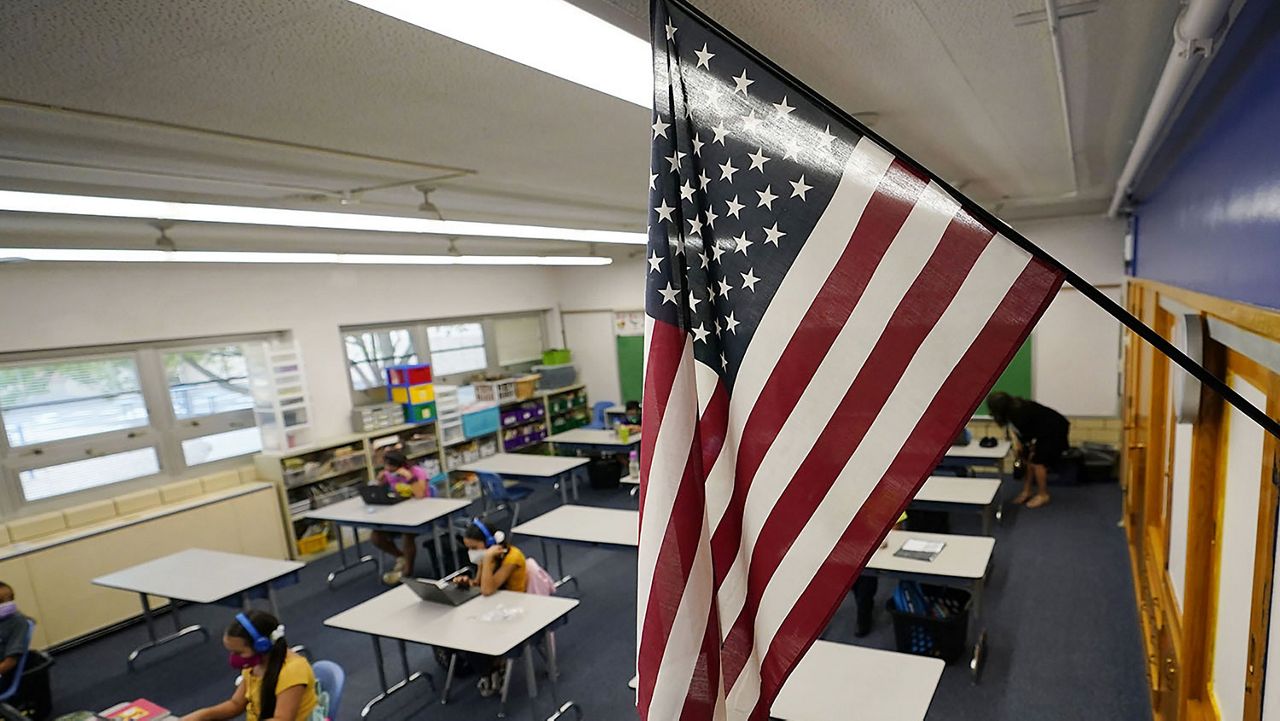White House officials are calling on Senate Republicans to pass a bipartisan immigration bill when it comes to a floor vote Thursday.
Negotiated by a bipartisan trio of U.S. Senators and introduced in February as the nation’s southern border experienced a swell of immigrants, GOP lawmakers immediately expressed opposition to the plan that had initially been proposed as part of a $95 billion foreign aid bill.
“Senate Republicans will have another opportunity to decide whether they want to support the toughest, fairest border security agreement in decades or whether they will continue putting their partisan political interests ahead of the nation’s security,” a senior administration official said Wednesday during a press briefing on Thursday’s immigration bill vote.
The bill would create funding to hire thousands of new border patrol agents, buy the latest in detection equipment, overhaul asylum laws and give the president new authorities to close the border when migrant encounters with border patrol agents begin overwhelming the system for processing them.
“This bipartisan agreement would make asylum processing fairer and more efficient while ensuring protections for the most vulnerable,” the official said, adding that the White house has been working with officials in Mexico and other countries to strengthen border enforcement.
The official said encounters between ports of entry at the Southwest border are down almost 50% from December, when almost 250,000 migrants tried to cross into the U.S. from Mexico — the highest monthly total ever recorded, according to U.S. Customs and Border Protection.
“We’re in a moment right now in terms of global migration where there are more people displaced all over the world than at any point since World War II, and that includes in our hemisphere,” a senior administration official said.
Noting that border encounters are down from their December peak and lower than they typically are this time of year, “all of the factors that have been driving this unprecedented movement of people all over the world remain," the official added.
An official said the Department of Homeland Security and the White house have been taking steps to exercise their legal authorities and coordinate with federal and international partners to reduce unlawful migration, including partnering with the Department of Justice to more quickly remove migrants who do not establish a legal basis to remain in the United States. The DOJ rule requires immigration courts to make a final decision on such cases in an immigration court within 180 days.
“We recognize there are limits to what any administration can do in this space with executive action,” the administration official said. “We have seen these surges of migration now occur regularly under the last three administrations of presidents of both parties, and you’ve seen presidents of both parties using their executive authorities to address it. What we really need here and what we continue to call for is for Congress to do its job.”
The Senate will vote on the bipartisan border security bill on Thursday. In February, Sen. James Lankford, R-Okla.; Sen. Chris Murphy, D-Conn.; and Sen. Krysten Sinema, I-Ariz., presented an immigration reform package they had negotiated over several months. GOP lawmakers immediately expressed opposition.
Former President Donald Trump also weighed in on the bipartisan proposal in February, urging GOP lawmakers to reject it. Republicans have said the bill made too many concessions to Democrats.
The bill was supposed to be included in a $95 billion foreign aid bill that also provided money for Israel, Ukraine and Taiwan. Sen. Chuck Schumer, D-N.Y., stripped the portion of the foreign aid bill that addressed the border, citing a lack of GOP support, and made it a standalone piece of legislation.
If the Senate passes the bill, House Speaker Mike Johnson, R-La., said this week it would be “dead on arrival” in the House of Representatives.










